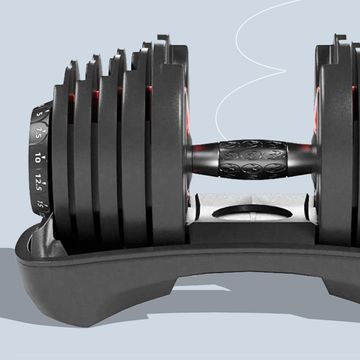Insomnia made Taye Diggs feel like another person.
His trouble sleeping began over a decade ago, when his son was born. “Having a child is the most amazing experience—but it’s also exhausting and stressful,” the actor says. “Every night I was watching the clock, worrying about him and anticipating when I’d need to get up to care for him. I began thinking about how little sleep I was getting.”
During that time, Diggs joined the over 25 million US adults who struggle with insomnia. And while he thought that his issues with sleeping would go away as his son got older, they never did.
“I remained stuck in a frustrating feedback loop of not getting enough sleep, worrying about how the sleep deprivation would affect me the next day, and then sleeping even less,” he says.
He tried all the sleep-well advice—sleep schedules, meditation, etc.—but nothing seemed to work for him. “Eventually, I knew I had to talk to my doctor about my insomnia,” says Diggs, a paid spokesperson for QUVIVIQ (daridorexant) CIV, a prescription medication for adults with difficulty falling or staying asleep (insomnia), manufactured by Idorsia. “Together, we talked about everything from the frequency of my insomnia to how long I was sleeping each night, and how it was affecting my life.”
Insomnia is an isolating experience. Realizing that he didn’t have to deal with it alone was a major relief. “We game-planned strategies to help me sleep through the night,” Diggs says. “My doctor prescribed me QUVIVIQ. Taking QUVIVIQ nightly helped me get more sleep, and I’ve noticed my sleep has improved over time.” In clinical studies of adults with insomnia, improvements in sleep were measured at one and three months after taking QUVIVIQ.
This is Diggs’s experience; however, some people may have headaches and sleepiness during the day when taking QUVIVIQ. And his doctor told him that he should avoid driving the morning after he takes QUVIVIQ until he feels fully awake, and only take QUVIVIQ on nights when he will be able to sleep for at least seven hours before he needs to wake up. Now, Diggs sleeps better than he did before.
If you’re reading this and are living with insomnia, talk to your doctor about it. Be ready to answer these questions:
- How often do you have trouble sleeping?
- How much sleep do you typically get each night?
- Does your trouble sleeping impact your daytime energy and/or daily routines?
- How does your trouble sleeping make you feel?
By knowing this information, your healthcare provider can determine whether QUVIVIQ is right for you.
What is QUVIVIQ (daridorexant)?
QUVIVIQ is a prescription medicine for adults who have trouble falling asleep or staying asleep (insomnia).
Important Safety Information
Do not take QUVIVIQ if you fall asleep often at unexpected times (narcolepsy) or if you are allergic to QUVIVIQ or any of its ingredients.
QUVIVIQ may cause serious side effects, including:
- Decreased awareness and alertness. The morning after you take QUVIVIQ, your ability to drive safely and think clearly may be decreased. You may also have sleepiness during the day.
o Do not take more QUVIVIQ than prescribed.
o Do not take QUVIVIQ unless you are able to stay in bed for at least 7 hours before you must be active again.
o Take QUVIVIQ at night within 30 minutes before going to bed.
QUVIVIQ is a federally controlled substance because it can be abused or lead to dependence.
Before taking QUVIVIQ, tell your healthcare provider about all of your medical conditions, including if you:
- have a history of depression, mental illness, or suicidal thoughts or actions; drug or alcohol abuse or addiction; a sudden onset of muscle weakness (cataplexy); daytime sleepiness
- have lung or breathing problems, including sleep apnea
- have liver problems
- are pregnant or plan to become pregnant
- are breastfeeding or plan to breastfeed
Tell your healthcare provider about all of the medicines you take, including prescription and over-the-counter medicines, vitamins, and herbal supplements.
- Taking QUVIVIQ with certain medicines can cause serious side effects. QUVIVIQ may affect the way other medicines work and other medicines may affect the way QUVIVIQ works.
- Do not take QUVIVIQ with other medicines that can make you sleepy unless instructed by your healthcare provider.
What should I avoid while taking QUVIVIQ?
- Do not drink alcohol while taking QUVIVIQ. It can increase the effects of alcohol, which can be dangerous.
- Do not drive, operate heavy machinery, do anything dangerous, or do other activities that require clear thinking if you do not feel fully awake, or you have taken QUVIVIQ and have less than a full night of sleep (at least 7 hours), or if you have taken more QUVIVIQ than prescribed.
QUVIVIQ may cause other serious side effects, including:
- Worsening depression and suicidal thoughts. Call your healthcare provider right away if you have any worsening depression or thoughts of suicide or dying.
- Temporary inability to move or talk (sleep paralysis) for up to several minutes, or hallucinations while you are going to sleep or waking up.
- Complex sleep behaviors such as sleep-walking, sleep-driving, preparing and eating food, making phone calls, having sex or doing other activities while not fully awake that you may not remember the next morning. Stop taking QUVIVIQ and call your healthcare provider right away if you experience a complex sleep behavior.
The most common side effects of QUVIVIQ are headache and sleepiness.
These are not the only side effects of QUVIVIQ. Call your doctor for advice about side effects.
You are encouraged to report negative side effects of prescription drugs to the FDA. Visit www.fda.gov/medwatch or call 1-800-FDA-1088.
Please see the full Prescribing Information and Medication Guide.
US-DA-00991 01/24













